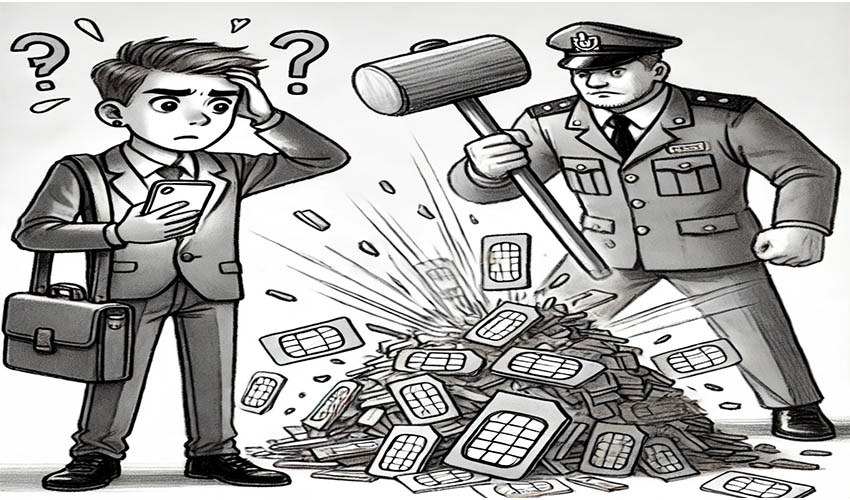Better late than never. The recently launched nationwide crackdown on the sale of illegal, pre-activated international subscriber identity module (SIM) cards is a commendable step. Pakistan Telecommunication Authority (PTA) and Federal Investigation Agency (FIA) teams have confiscated tens of thousands of these ‘ghost SIMs’ and made dozens of arrests during the last two weeks.
The crackdown is in line with Pakistan’s telecom and cybercrime laws that have been combined in this case to ensure prompt action. The PTA strictly prohibits the sale and use of unregistered SIMs, while the recently amended Prevention of Electronic Crimes Act (PECA) criminalizes the use of communication tools for illicit activities.
These plug-and-play SIMs, particularly from the United Kingdom, are in high demand. Most young entrepreneurs seek them either for setting up and managing cross-border e-commerce accounts or for getting their social media accounts monetized.
Pre-activation makes them untraceable since the usual identity verification by biometric systems is bypassed. Local users operate freely as the SIMs often route through foreign servers and mask users’ identities. Moreover, encryption technologies and VPNs add another layer of anonymity, making it nearly impossible to pinpoint their exact location or identity. This very anonymity makes international SIMs a double-edged sword and complicates law enforcement efforts.
Terror outfits and organized crime syndicates use ghost SIMs for communication, ransom demands, and money laundering. Many cases involving financial fraud, identity theft, kidnappings, ransomware schemes, child pornography and online extortion also trace back to these SIMs
Intelligence reports suggest that terror outfits and organized crime syndicates use ghost SIMs for communication, ransom demands, and money laundering. Many cases involving financial fraud, identity theft, kidnappings, ransomware schemes, child pornography and online extortion also trace back to these SIMs. While these security concerns further justify the crackdown, they also highlight the lack of viable alternatives for global business connectivity. This necessitates telecom companies to play a role in maintaining a balance.
International carriers that issue these SIMs are not entirely unaware of their misuse. Regulatory bodies must push for stricter controls to check this misuse and ensure that foreign providers do not shut their eyes to illegal activities linked to their networks. The noose around retailers can be tightened with stricter monitoring of bulk SIM imports, while a licensing framework can ensure accountability. The public also needs to be educated about the risks of using unauthorized international numbers.
While authorities work to hold importers and sellers accountable, they must also devise mechanisms to close loopholes that enable misuse and ensure that international numbers do not become an unchecked security risk. Instead of opting for an outright ban, authorities must implement policies that prevent the misuse of international SIMs without stifling digital business opportunities.



























